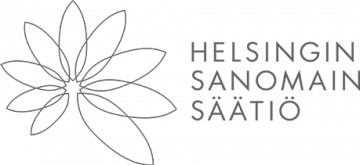Project Archive
The already completed JMC projects are listed here alongside some material and information about the projects. Follow the hyperlinks to the project specific pages.
Campus Carry
Campus Carry
The four-year project (2017–2021) studied the implications of the Texas state “Campus Carry” gun legislation (SB 11) that came into effect on August 1, 2016. Through qualitative and quantitative research, the project focused on the changing spatial dynamics at The University of Texas at Austin campus. The research introduced a people-centered focus that studies the ways in which the campus community experiences, negotiates, and challenges these changes. The project produced original research data and cutting-edge cultural analysis on the ramifications of gun legislation on people’s lives. The research also contributed to broader scholarly and public debates about U.S. gun culture and the Second Amendment right to bear arms.

#TRAGE
#TRAGE: Tragediauutisoinnin haasteet – median mahdollisuudet käsitellä kouluampumisia
This project, which began in January 2019, examined U.S. and Finnish media’s reporting of the 2018 high school shootings in Parkland, Florida. The project produced a new, comparative database on reporting on school shootings and opened up a new avenue for discussing the challenges posed by such reporting. The project considered the tensions between traditional media and social media based #-activism, with concrete suggestions for journalists’ work.

Histories of Death Symposium
Histories of Death Symposium
Histories of Death Symposium was organized at the University of Turku on February 19-21, 2020.
Our understandings of death come with long and complex histories, shaped by culture, place, time, power, and identities. This International Symposium delves into these many varied and interwoven Histories of Death. Death sets people into action, caring for the dying, the deceased, and the grieving in ways that range from the intimate to the professional. The Symposium brings researchers, artists, and activists together to engage in dialogue about the different ways people have approached death and mourning from everyday, cultural, and structural perspectives. Contributing to the interdisciplinary and rapidly growing field of Death Studies, historical analysis allows us to better understand how social factors — class, migrant background, and gender, among them — can result in unequal access to “good death” now, as in the past. Thinking historically lets us see how and why we have begun to move toward “death positivity,” alternative and ecological burial solutions, and new understandings of grief.